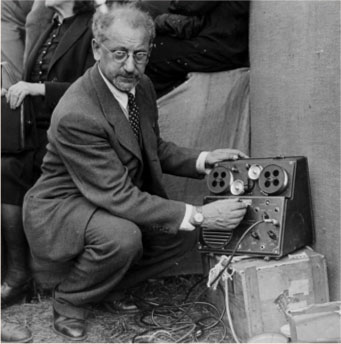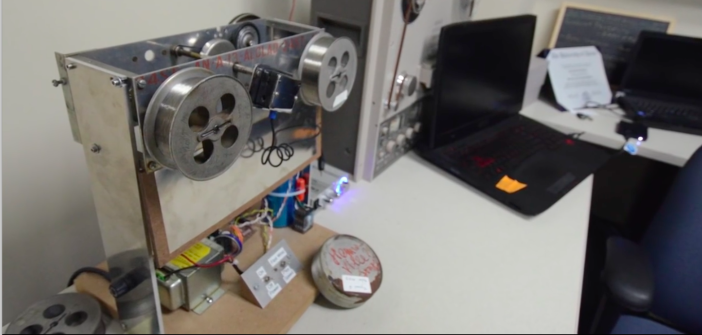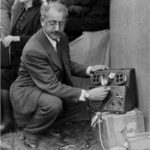The University of Akron, Ohio, possessed testimonies and songs of deportees from extermination camps. Their discovery and the digitization of the audio data have made these golden archives accessible.
Psychologist David Boder arrived in Paris in 1946 to record the testimonies of the prisoners from the camps. He interviewed over 130 people in several different languages. He also recorded, in Hénonville, a commune in Oise, Yiddish songs. These were the songs that prisoners sang during their comings and goings between dormitories and forced labor.

These recordings have been stored since 1967 in the archives of the University of Akron, Ohio. Apart from a labeling error that isolated the documents for years, they were recorded with period equipment, incompatible with today’s devices. A long digitization process was therefore required.
Voices of the Holocaust – Excerpt No. 1
song-clip-3_1_.mp3
David Boder used a steel wire recorder. The Drs. Nicholas and Dorothy Cummings Center for the History of Psychology at the university recently launched a digitization project for 48 reels retrieved in 1967 from the 200 recorded in total. Problem: such a recorder scarcely exists anymore; one is still available, but too old and outdated, it could damage the reels.
David Baker, executive director of the Cummings Center, says his team then conducted an investigation on eBay. They managed to find a working device, and after some refurbishment, they were able to connect it to a computer and a mixing console to carry out the digitization of the audio data.
Voices of the Holocaust – Excerpt No. 2
song-clip-1.mp3
David Baker announced that his team is currently working on the rest of the recordings.



